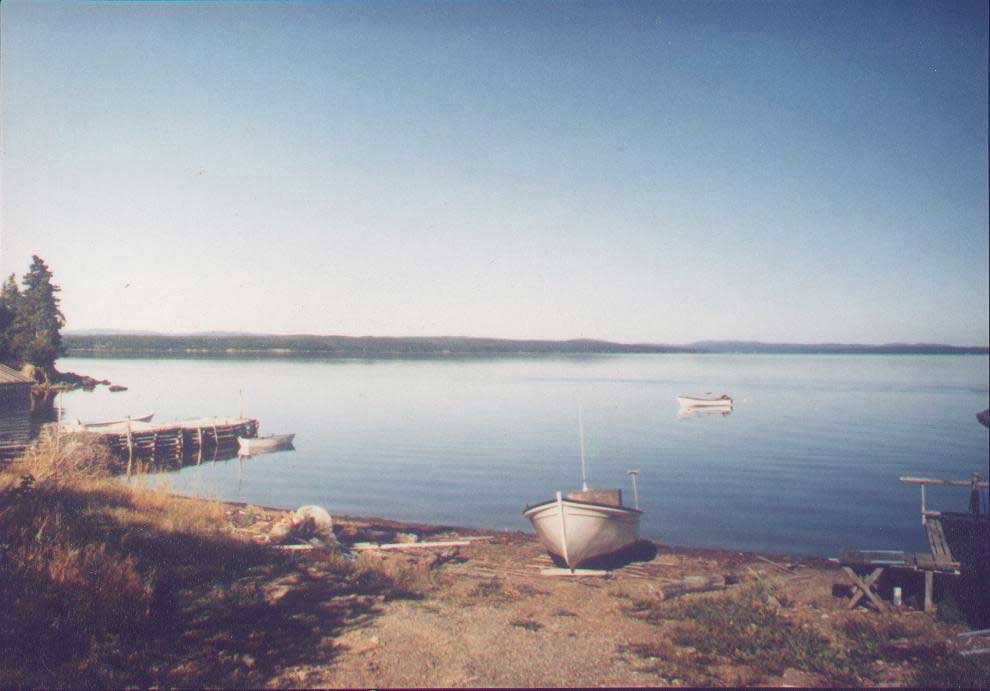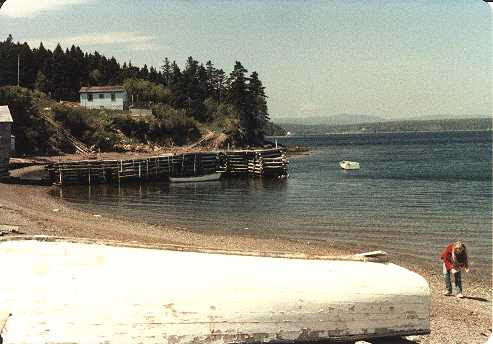Waking up and looking out over the waters of Smith’s Sound, you can really believe you can hear the world breathing. Its so still, the blue sky and blue water, serenity. Then you hear the unmistakable sound that gave an engine its nick name, put put put goes an old Atlantic Make and Break engine. I know there was another manufacturer as well, but all I can remember now is people talking about a 2 Atlantic when referring to these. They were staples of the Newfoundland fishing industry for probably 70 or more years.
Most people whose livelihood came from the fishery had one of these equipped in their main fishing boat. Nowadays people seem to keep their speedboats at a wharf or pier, but back then and probably still for some, a fisherman kept his boat off shore a ways on a collar. I can only assume it was to prevent damage from storms or high winds, but I really don’t know the reason. People kept a flat (a flat bottom boat) or a dory or rodney to get out to their main boat. I can’t really do a collar justice, but its basically a wooden contraption anchored to bottom by a grapnel, which you could moor your boat to. Here’s a link to the Dictionary of Newfoundland English definition.
Another unique thing to see related to this was seeing the old timers using a sculling oar to make their way out to the collar. Someone skilled with such an oar could really make a rodney move! A sculling oar is similar to other boat oars, but longer, with a handle, and a slightly different blade. A skilled user could manipulate this oar as both a propellor and a rudder and steer and propel a boat. I’ve tried it some in the past myself, and while I could make it work a little, its quite a talent or art. I’ll never forget how quickly Uncle Lionel Kelly could make his rodney fly across the water.
Its a Tuesday evening here now, but in my mind its an early Saturday morning, and you can hear a loon cry across the water, a make and break put putting down the sound, and the quiet splash of water dripping from a sculling oar as Uncle Lionel makes his way to his collar as the early morning vapor rises over the sheet of glass that is Smith’s Sound.
Raised in outport Newfoundland in a town of 65 people, I pursued a post secondary diploma in Information Technology right out of High School.
I’ve always been a geek at heart, but yet I love the rural life I grew up with. Fishing, hunting, camping and the great outdoors are still loves of mine, even if I don’t pursue them as often as I once did. Sports were always a big part of our lives, and I played many (badly) and loved them all.




